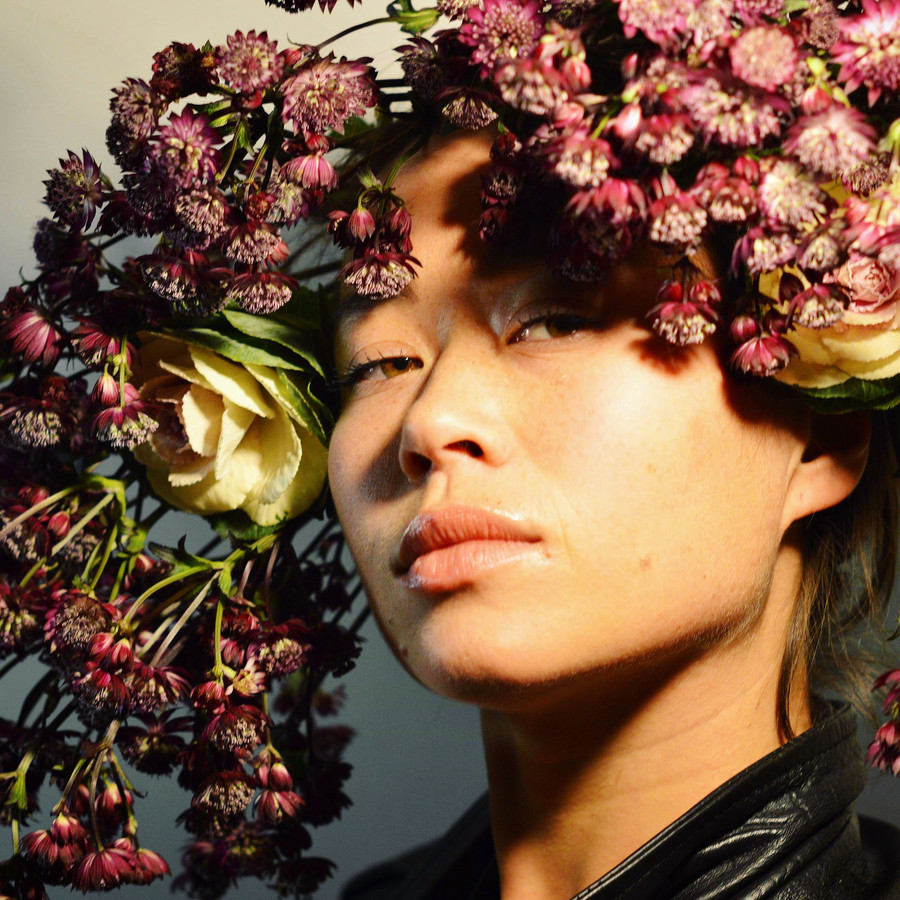Many graduates also work as composers, songwriters and producers in their own projects or those of other artists. The employment opportunities depend on both market fluctuations in the business and on the priorities of cultural policy, and may therefore vary a great deal.
Kristian Finne, graduated in 2017
What’s your job now?
I am a songwriter, musician, singer and composer. Besides the artistic work with my own projects Chorus Grant and Cancer, I work as an artistic sparring partner, lyrics writer and songwriter in collaborations with exciting bands and artists in the process of recording. Furthermore, I teach from time to time at Danish folk high schools in songwriting. I am also currently immersing myself in new experimental music at RMC’s APD programme.
Why did you choose to study Music Performance?
After many years in the Danish alternative underground scene, I felt, that I had the need to target and focus my artistic activities, get an academic proficiency to speak from and a professionalization in the way that I act as a musician and songwriter. To begin with, I graduated in 2013 from the Composition programme and after a few years as a performing musician, I got increasingly interested in improving my skills as a guitarist and started at the Music Performance programme. The more hands-on approach to music resulted in many new ideas and a gradual evolvement into a personal style of playing. That is a part of my work that I still explore and develop on.
What’s the best thing you got from the programme?
As a musician and an artist, the two main things for a valuable and productive life with music is to be in an inspiring environment and have the time and serenity to immerse yourself in new movements and ideas. I found both circumstances as a student and the payoff has been very noticeable in the form of greater interest in my artistic activities inside and outside of Denmark.
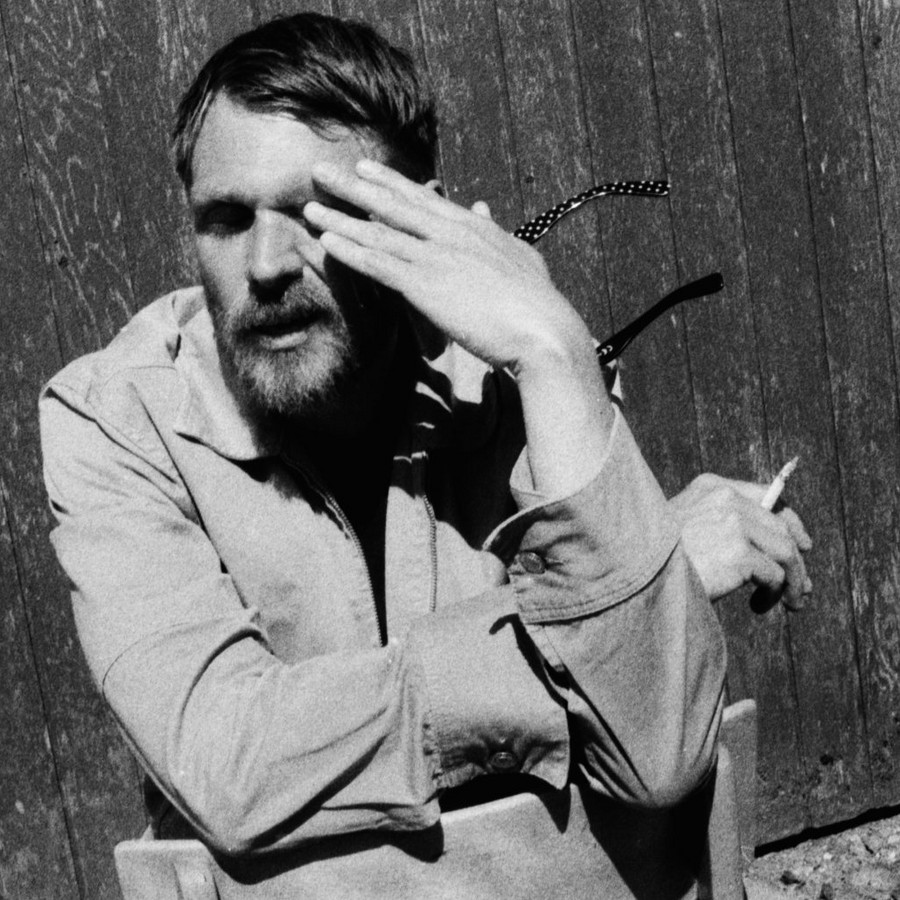
Natalie Sandtorv, graduated in 2018
What’s your job now?
I work as a performing musician, composer and lyricist with base in Oslo. I have my own solo project as an alternative pop singer that I tour around Europe with.
Why did you choose to study Music Performance?
I knew somebody who had studied at RMC and I got very curious when I heard about the programme. It seemed very free but demanding, and with the guidance of a certain weight that I would like to learn from. And I love Danish people and Copenhagen.
What were your most important discoveries?
I learned a lot about the importance of being a good entrepreneur. You need to have a clear vision and think long term about your career. I got motivated by my own artistic expression and got better at pushing myself further through the music. I also discovered the importance of provoking ideas, even though the first impression might be bad. It’s all about the process!
What’s the best thing you got from the programme?
It must be working conceptually and go in-depth with my projects. I learned the importance of good craftsmanship and having strong opinions about what you do. I loved my time at RMC. It was two amazing years where I got the time to completely focus and develop good routines.
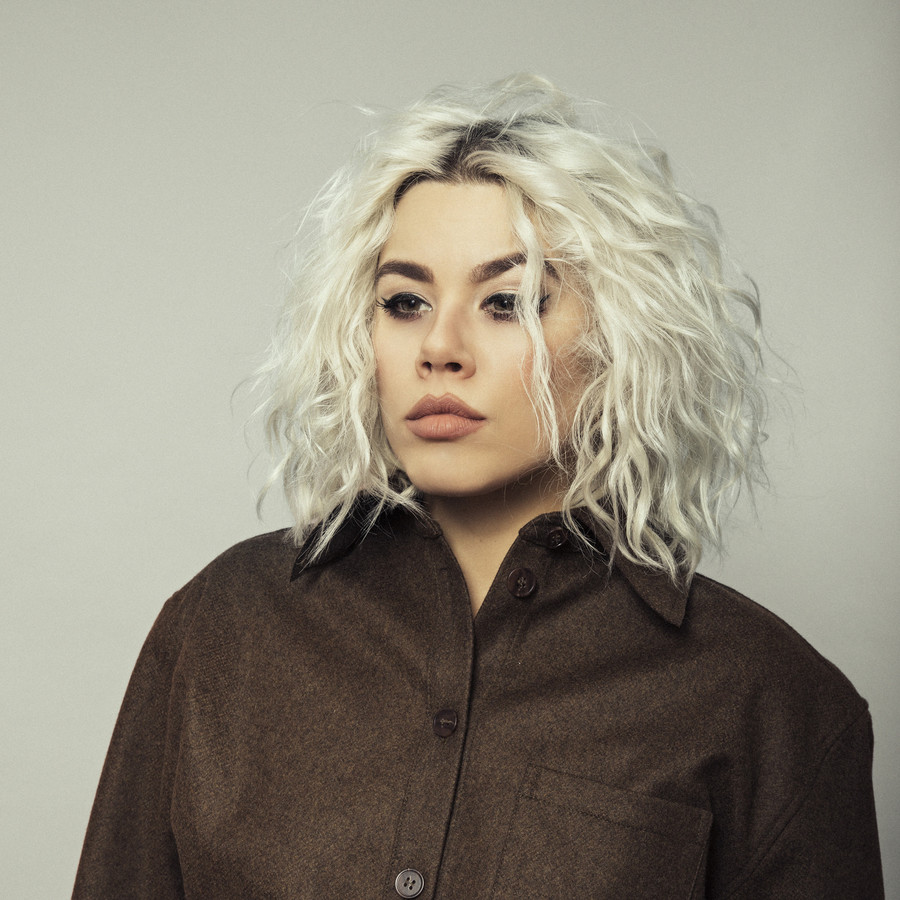
Ole Mofjell, graduated in 2017
What’s your job now?
I work as a freelance musician in Oslo, touring with a variety of different artists and a lot of one-offs and collaborative projects. I also work with the festivals All Ears and Platform Nord as well as running the concert series Fresh Sounds in Kristiansand.
What’s a typical working week for you?
I usually play about 2-5 gigs every week. I also spend a lot of time on the computer, booking shows and travel tickets and all that stuff. Usually on the move to a gig, rehearsal or a meeting of some sort.
Why did you choose to study Music Performance?
Because the programme is unique and very interesting. I would not have had the chance to work the way I did there any other place in the world. Very inspiring and fresh.
What were your most important discoveries?
I learned that every single person has their own path they can choose to follow. I studied with many brilliant artists at RMC, and they were all very different. Some I worked with, some I could just admire and respect for doing their own thing.
What’s the best thing you got from the programme?
The opportunity to go your own way, and get the tools to do so, has been very important to me. In addition, the network of international musicians at the school has given me the chance to tour in Latvia, Poland, England, the US, Germany with local musicians. I would say the opportunity to create an international network has had a strong impact on me as a performer after graduating.
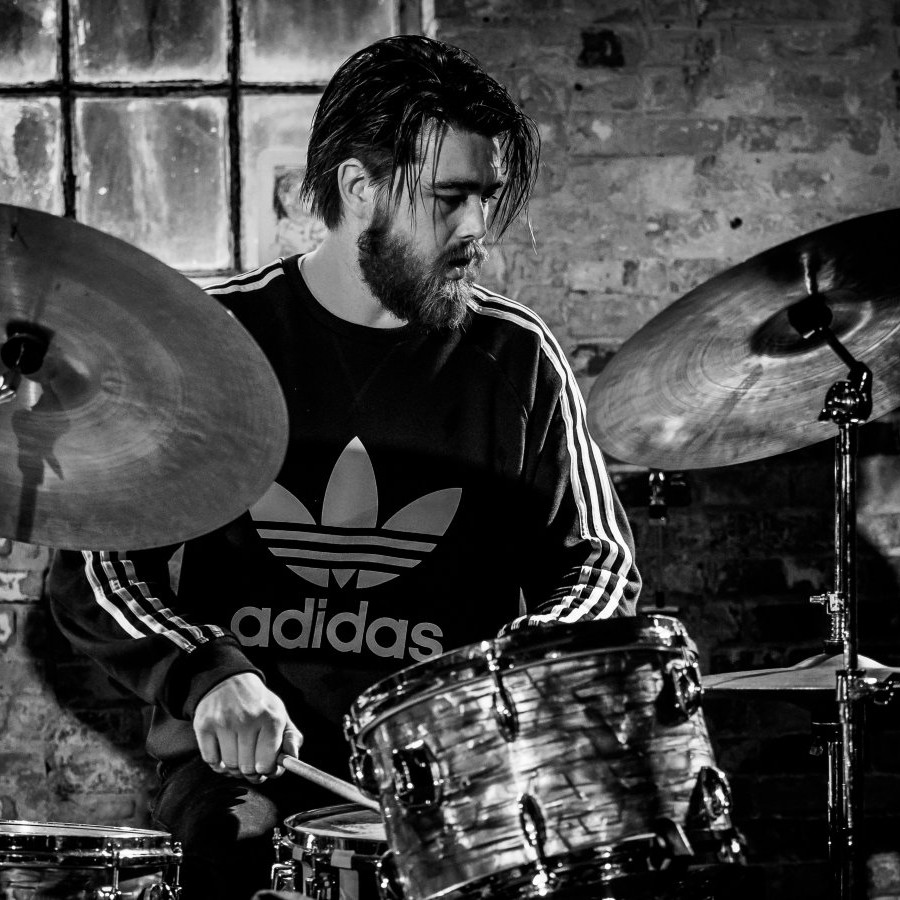
Rasmus Oppenhagen Krogh, graduated in 2018
What’s your job now?
As a freelance musician and composer, I have a job that alternates between immersion in and work on own projects and involvement as a musician with different bands, artists and projects, both live and in the studio.
Why did you choose to study Music Performance?
The way of studying gave me the opportunity to immerse myself in my identity as a performing musician and at the same time work with my compositional expression, facilitated through the various projects at the school. Those two aspects are closely connected in my artistic praxis and the study plan made it possible for me to work parallel with them both. Improvisation is important in my approach to music so it played into my choice as well that several of the other students had improvisation as a common denominator. The teaching staff and the large amount of freedom to set the direction of your education attracted me as well.
What were your most important discoveries?
To think big projects through from A-Z and lay out the framework in the best possible way – both creatively and practically. My education has given me a variety of tools to work structurally and targeted with my artistic goals and continuously relate critically to my work. To be able to verbalize inspiration and contextuality and communicate my own artistic work has had a great influence on the practical as well as reflective work.
What’s the best thing you got from the programme?
An important part at my time at the conservatory has been to take part in other people’s projects and absorb inspiration, methods and approaches to music – parallel to getting wiser on how I become a part in other people visions without having to compromise with myself or my expression as a musician.
Sparring and insights in other peoples work have been a crucial part of my school years. The meeting with a myriad of deeply inspiring teachers and fellow students and the opportunity to take classes with external educators has been invaluable to me.
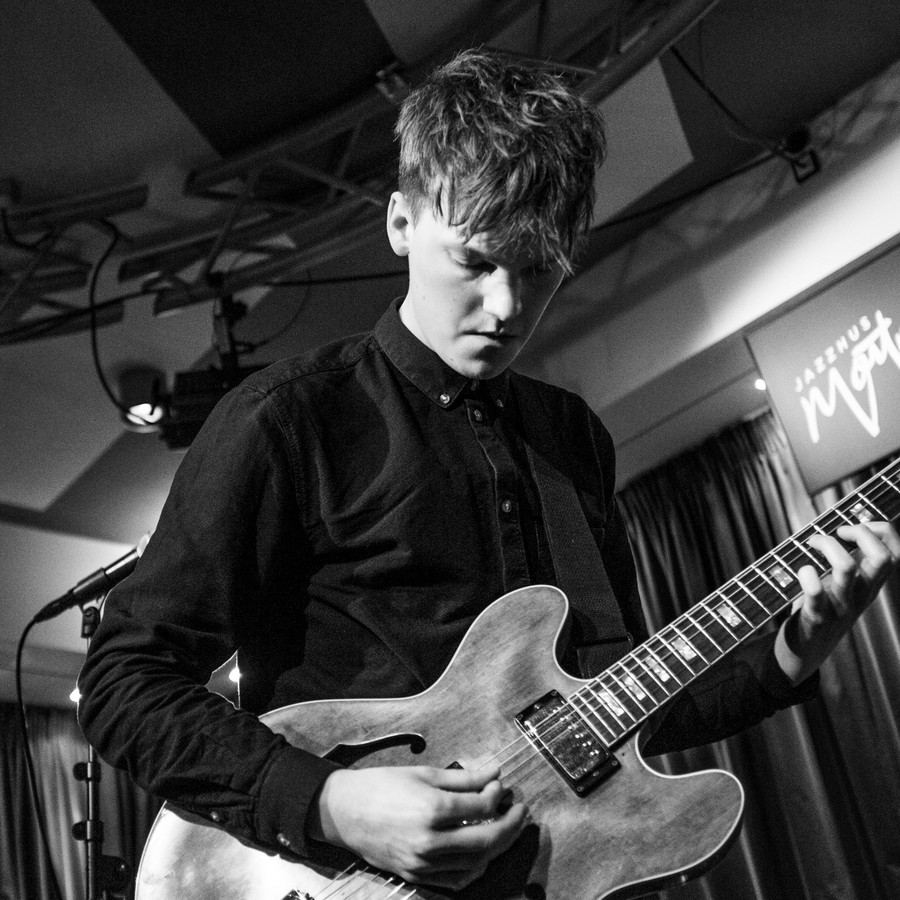
Kaspar Vig, graduated in 2018
What’s your job now?
As a musician and project coordinator. My job is with me everywhere. At the moment I am settled in India where I work on a film together with local artists. Besides my work with music and film, I work with project management, fundraising and teaching composition, songwriting and creative processes.
Why did you choose to study Music Performance?
I chose to do education at RMC based on needing to immerse myself in my music and art. I wanted a secure platform, without having to relate to the music industry, where I could enhance my skills and test my musical ideas.
What were your most important discoveries?
To learn that the road to true musical realization lies outside of your own ego and cultural understanding. Even when it’s about motor skill challenges on a bongo drum or being emotionally present in either John Cage’s weird silence or modern produced R’n’B, the trick is to step out of yourself and receive all of it in a universal pulsating musical context.
What’s the best thing you got from the programme?
The unity and collective musical curiosity are some of the most important I have gained from my education. But also the ability to handle yourself in the world of art and music – both on a technical and spiritual level. The education has strengthened my entrepreneurial skills and has given me a lot of tools to work professionally with my music.
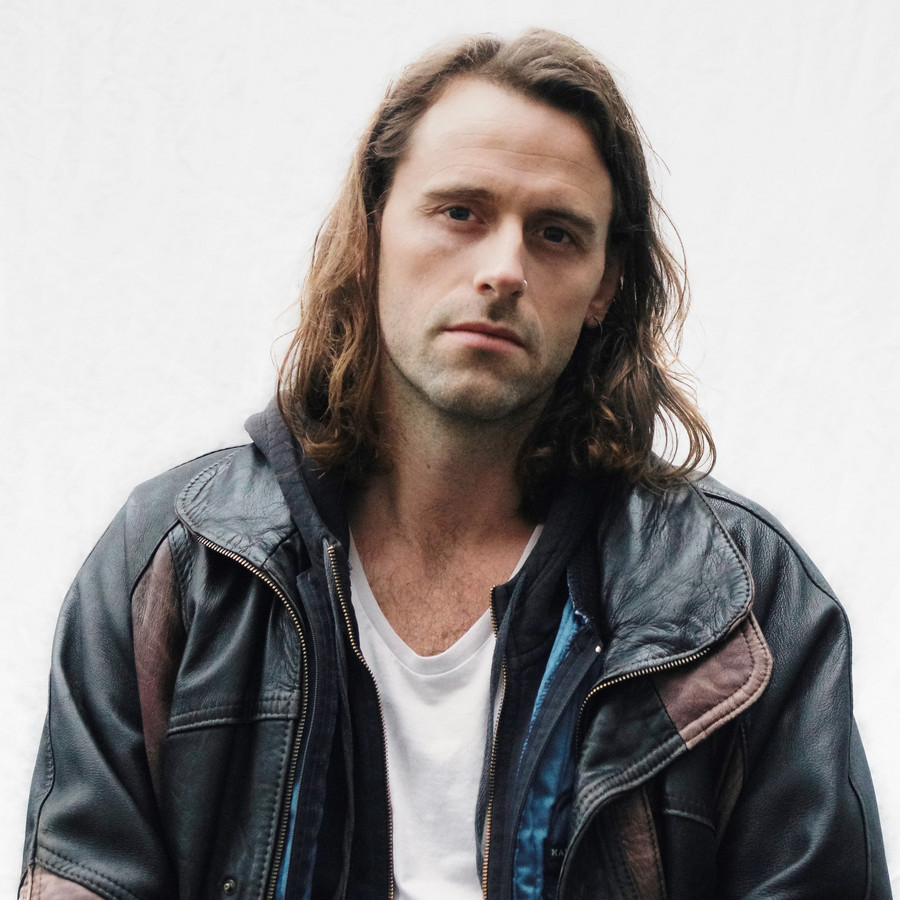
Ida Kudo, graduated in 2015
What’s your job now?
I write, produce and perform my music as a solo artist and also co-write and co-produce a lot – currently in London. I also work as a band doctor and I teach gladly.
What’s a typical working day for you?
I have no typical workday. When I co-write, it is likely to be one or two days in the studio. When there are concerts, then the band is in focus with intense and many practices for the concerts. I always make sure to do everything that I can in regards to keep track of the economy, so a lot of time is spent doing practical stuff: applying for funds, check that I have received my fees, reporting to Koda etc. And I book myself in as a temp, teaching or coaching whenever I can see, that I am economically in the need of doing so.
Why did you choose to study Music Performance?
Because the music was pulling me. I have played classical violin from an early age and went away from classical and into the rhythmical when I started writing on my own. I chose the programme because singing and vocals are at the centre of my songwriting and the instrument, I express myself most directly through. I could feel that there was much freedom in the programme to unfold oneself artistically which was what I wanted.
What were your most important discoveries?
How much different music I ended up doing. How fun it can be to work with skilful, creative musicians. How great it was to have your music planted in reality. How inspiring it can be to work with musicians that understand where you are going.
What’s the best thing you got from the programme?
Solid ground and a strong beginning to start and unfold my solo career. When I arrived at RMC, I really did not know the rhythmic world, I had just made some songs on my own and found someone to play them with. RMC was the arena, my home ground, where I could start experimenting with my style, my sound and artistic identity. It was a very important stepping stone for me to get a foot inside of the rhythmic music scene. It is also where I got my dear and important music network.
